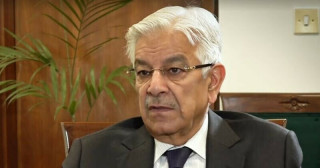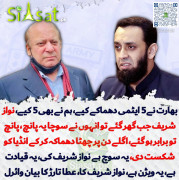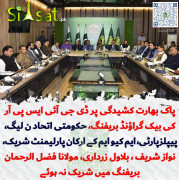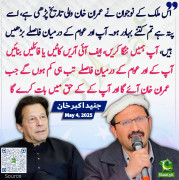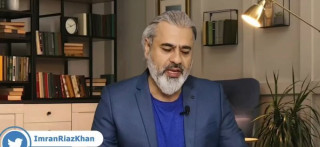ealtaf
Minister (2k+ posts)
Definition: A boycott is a form of consumer activism involving the act of voluntarily abstaining from using, buying, or dealing with a person, organization, or country as an expression of protest, usually for political reasons.
Notable boycotts
Although the term itself was not coined until 1880, the practice dates back to at least 1830, when the National Negro Convention encouraged a boycott of slave-produced goods. Other instances of boycotts are their use by African Americans during the US civil rights movement (notably the Montgomery Bus Boycott); the United Farm Workers union grape and lettuce boycotts; the American boycott of British goods at the time of the American Revolution; the Indian boycott of British goods organized by Mohandas Gandhi; the successful Jewish boycott organised against Henry Ford in the USA, in the 1920s; the boycott of Japanese products in China after the May Fourth Movement; the Jewish anti-Nazi boycott of German goods in Lithuania, the USA, Britain and Poland during 1933; the antisemitic boycott of Jewish-owned businesses in Nazi Germany during the 1930s and the Arab League boycott of Israel and companies trading with Israel. In 1973, the Arab countries enacted a crude oil embargo against the West, see 1973 oil crisis. Other examples include the US-led boycott of the 1980 Summer Olympics in Moscow, the Soviet-led boycott of the 1984 Summer Olympics in Los Angeles, and the movement that advocated "disinvestment" in South Africa during the 1980s in opposition to that country's apartheid regime. The first Olympic boycott was in the 1956 Summer Olympics with several countries boycotting the games for different reasons. Iran also has an informal Olympic boycott against participating against Israel, and Iranian athletes typically bow out or claim injuries when pitted against Israelis (see Arash Miresmaeili).
Major historical boycotts
In 617, the Meccans boycotted the Hashemites in order to put pressure on the clan to withdraw its protection from Muhammad.
March 1769, in opposition of "taxation without representation," merchants in Philadelphia joined the boycott of British trade goods at the time of the American Revolution.
In 1848, Milanese boycotts of Austrian state monopolies led to a military over-reaction, fomenting revolution in Northern Italy and the declarations of independence of Milan and Venice.
the boycott of Captain Charles Cunningham Boycott, an English land agent in Ireland who was subject to a boycott organized by the Irish Land League, 1880
Boycott of Tobacco in Iran in response to colonialist British Tobacco Rgie, 1891.
Boycott of American goods by Chinese in response to the Chinese Exclusion Act of 1882 and developments in 1905-06.[1]
Boycott of Japanese products in China after the May Fourth Movement.
Economic Boycott of Germany by The American Jewish Congress - March 1933
Nazi boycott of Jewish doctors, lawyers, and stores in Nazi boycott of Jewish businesses; it formally lasted only one day (April 1, 1933, ironically on a Saturday-the day of Sabbath when most Jewish Businesses and shops were closed already on that day, but eventually was the beginning of the racial policy of Nazi Germany.
Boycotts of Jewish businesses in Iraq following the Farhud, during 1941-1951.
The boycott of British goods by Mahatma Gandhi known as the swadeshi policythe boycott of foreign-made goods, especially British goods. Linked to this was his advocacy that khadi (homespun cloth) be worn by all Indians instead of British-made textiles. Gandhi exhorted Indian men and women, rich or poor, to spend time each day spinning khadi in support of the independence movement.[3] This was a strategy to inculcate discipline and dedication to weed out the unwilling and ambitious, and include women in the movement at a time when many thought that such activities were not respectable for women. In addition to boycotting British products, Gandhi urged the people to boycott British educational institutions and law courts, to resign from government employment, and to forsake British titles and honours.
by African Americans during the U.S. civil rights movement, late 1950s and 1960s (especially the Montgomery bus boycott).
the United Farm Workers union's grape and lettuce boycotts.
the Arab League boycott of Israel and companies trading with Israel.
the academic boycott of South Africa by a large part of the world's countries during its apartheid period.
Boycott of south African produce (e.g. Cape Town Sherry Wine and Outspan lemons) in opposition to apartheid.
Leading US Companies in Pakistan
Abbott Laboratories
AES Pakistan
American Consultants
American President Lines
Bank of America
Brink's Pakistan
Caltex Oil Pakistan
Captain-PQ Chemical Industries
Carrier Service Company
Citibank
The Coca-Cola Export Corporation
Colgate-Palmolive Pakistan
Cornpak
Crescent Greenwood
Cyanamid Pakistan
Dawood Hercules Chemicals
DHL Pakistan
DuPont Far East Inc.
Eli Lilly Scientific Office
First International Investment Bank
The General Tyre & Rubber Company of Pakistan
Gillette Pakistan
IBM Semea
Intel Pakistan
International Laboratories
Johnson & Johnson Pakistan
Karachi International Container Terminal
Karam Ceramics
KFC
McDonalds
Merck Sharp & Dohme Pakistan
Morgan Stanley Pakistan Investment Fund
Muller & Phipps Pakistan
New Hampshire Insurance Company
Occidental Pakistan
Pakistan Mobile Communications
Parke, Davis & Company
Pepsi-Cola Pakistan
Pfizer Laboratories
Pizza Hut
Premier Tobacco Industries
Procter & Gamble Pakistan
Rafhan Maize Products Company
Sheraton Middle East Management Corp.
Singer Pakistan
Smith Kline Becham Pakistan
Squibb Pakistan
3M Pakistan
Union Texas Pakistan
Upjohn Pakistan
These all companies are working in Pakistan and earning alot of profits, this is directly benefiting USA. All the Brands and products made by these companies must be boycotted and banned by Pakistani Nation to put economical pressure on USA, try to switch to substitutes where we can, don't let Americans decide our fate.
Pakistan Zindabad.
Notable boycotts
Although the term itself was not coined until 1880, the practice dates back to at least 1830, when the National Negro Convention encouraged a boycott of slave-produced goods. Other instances of boycotts are their use by African Americans during the US civil rights movement (notably the Montgomery Bus Boycott); the United Farm Workers union grape and lettuce boycotts; the American boycott of British goods at the time of the American Revolution; the Indian boycott of British goods organized by Mohandas Gandhi; the successful Jewish boycott organised against Henry Ford in the USA, in the 1920s; the boycott of Japanese products in China after the May Fourth Movement; the Jewish anti-Nazi boycott of German goods in Lithuania, the USA, Britain and Poland during 1933; the antisemitic boycott of Jewish-owned businesses in Nazi Germany during the 1930s and the Arab League boycott of Israel and companies trading with Israel. In 1973, the Arab countries enacted a crude oil embargo against the West, see 1973 oil crisis. Other examples include the US-led boycott of the 1980 Summer Olympics in Moscow, the Soviet-led boycott of the 1984 Summer Olympics in Los Angeles, and the movement that advocated "disinvestment" in South Africa during the 1980s in opposition to that country's apartheid regime. The first Olympic boycott was in the 1956 Summer Olympics with several countries boycotting the games for different reasons. Iran also has an informal Olympic boycott against participating against Israel, and Iranian athletes typically bow out or claim injuries when pitted against Israelis (see Arash Miresmaeili).
Major historical boycotts
In 617, the Meccans boycotted the Hashemites in order to put pressure on the clan to withdraw its protection from Muhammad.
March 1769, in opposition of "taxation without representation," merchants in Philadelphia joined the boycott of British trade goods at the time of the American Revolution.
In 1848, Milanese boycotts of Austrian state monopolies led to a military over-reaction, fomenting revolution in Northern Italy and the declarations of independence of Milan and Venice.
the boycott of Captain Charles Cunningham Boycott, an English land agent in Ireland who was subject to a boycott organized by the Irish Land League, 1880
Boycott of Tobacco in Iran in response to colonialist British Tobacco Rgie, 1891.
Boycott of American goods by Chinese in response to the Chinese Exclusion Act of 1882 and developments in 1905-06.[1]
Boycott of Japanese products in China after the May Fourth Movement.
Economic Boycott of Germany by The American Jewish Congress - March 1933
Nazi boycott of Jewish doctors, lawyers, and stores in Nazi boycott of Jewish businesses; it formally lasted only one day (April 1, 1933, ironically on a Saturday-the day of Sabbath when most Jewish Businesses and shops were closed already on that day, but eventually was the beginning of the racial policy of Nazi Germany.
Boycotts of Jewish businesses in Iraq following the Farhud, during 1941-1951.
The boycott of British goods by Mahatma Gandhi known as the swadeshi policythe boycott of foreign-made goods, especially British goods. Linked to this was his advocacy that khadi (homespun cloth) be worn by all Indians instead of British-made textiles. Gandhi exhorted Indian men and women, rich or poor, to spend time each day spinning khadi in support of the independence movement.[3] This was a strategy to inculcate discipline and dedication to weed out the unwilling and ambitious, and include women in the movement at a time when many thought that such activities were not respectable for women. In addition to boycotting British products, Gandhi urged the people to boycott British educational institutions and law courts, to resign from government employment, and to forsake British titles and honours.
by African Americans during the U.S. civil rights movement, late 1950s and 1960s (especially the Montgomery bus boycott).
the United Farm Workers union's grape and lettuce boycotts.
the Arab League boycott of Israel and companies trading with Israel.
the academic boycott of South Africa by a large part of the world's countries during its apartheid period.
Boycott of south African produce (e.g. Cape Town Sherry Wine and Outspan lemons) in opposition to apartheid.
Leading US Companies in Pakistan
Abbott Laboratories
AES Pakistan
American Consultants
American President Lines
Bank of America
Brink's Pakistan
Caltex Oil Pakistan
Captain-PQ Chemical Industries
Carrier Service Company
Citibank
The Coca-Cola Export Corporation
Colgate-Palmolive Pakistan
Cornpak
Crescent Greenwood
Cyanamid Pakistan
Dawood Hercules Chemicals
DHL Pakistan
DuPont Far East Inc.
Eli Lilly Scientific Office
First International Investment Bank
The General Tyre & Rubber Company of Pakistan
Gillette Pakistan
IBM Semea
Intel Pakistan
International Laboratories
Johnson & Johnson Pakistan
Karachi International Container Terminal
Karam Ceramics
KFC
McDonalds
Merck Sharp & Dohme Pakistan
Morgan Stanley Pakistan Investment Fund
Muller & Phipps Pakistan
New Hampshire Insurance Company
Occidental Pakistan
Pakistan Mobile Communications
Parke, Davis & Company
Pepsi-Cola Pakistan
Pfizer Laboratories
Pizza Hut
Premier Tobacco Industries
Procter & Gamble Pakistan
Rafhan Maize Products Company
Sheraton Middle East Management Corp.
Singer Pakistan
Smith Kline Becham Pakistan
Squibb Pakistan
3M Pakistan
Union Texas Pakistan
Upjohn Pakistan
These all companies are working in Pakistan and earning alot of profits, this is directly benefiting USA. All the Brands and products made by these companies must be boycotted and banned by Pakistani Nation to put economical pressure on USA, try to switch to substitutes where we can, don't let Americans decide our fate.
Pakistan Zindabad.


